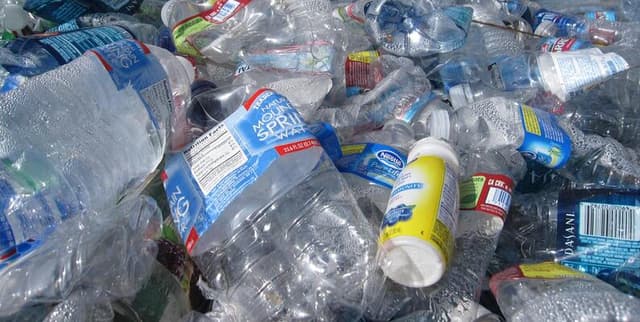Ocean Risk Plastic Waste Data
Data Science and Analytics
Tags and Keywords
Trusted By




"No reviews yet"
Free
About
This dataset provides critical insights into global mismanaged plastic waste across 194 countries for the years 2010 and 2019. It quantifies plastic waste that is at a high risk of entering the ocean, differentiating between material that is simply littered and that which is inadequately disposed of. Inadequately disposed waste is plastic intended for management but which ultimately ends up in open dumps or uncontrolled landfills, making it susceptible to leakage into the natural environment and oceans via waterways, winds, and tides. This data serves to highlight the scale of the worldwide plastic pollution challenge and its potential impact on marine ecosystems.
Columns
- Country: The name of the country for which the plastic waste data is provided. This column contains 194 unique country values.
- Total_MismanagedPlasticWaste_2010 (millionT): The total volume of mismanaged plastic waste in million tonnes for the year 2010.
- Total_MismanagedPlasticWaste_2019 (millionT): The total volume of mismanaged plastic waste in million tonnes for the year 2019.
- Mismanaged_PlasticWaste_PerCapita_2010 (kg per year): The amount of mismanaged plastic waste per person in kilograms per year for 2010.
- Mismanaged_PlasticWaste_PerCapita_2019 (kg per year): The amount of mismanaged plastic waste per person in kilograms per year for 2019.
Distribution
The dataset is provided as a CSV file, named
mismanaged_plasticwaste.csv, and has a file size of 7.47 kB. It features 5 columns and includes data for 194 distinct records, corresponding to 194 countries. All columns are fully populated with valid entries for each country. This dataset is static and has an expected update frequency of 'Never'.Usage
This dataset is ideal for a range of applications focused on environmental research and policy development. It can be used for:
- Analysing and comparing global trends in plastic pollution between 2010 and 2019.
- Informing research on environmental impact, waste management effectiveness, and leakage pathways.
- Supporting policy formulation aimed at reducing plastic waste and protecting marine environments.
- Conducting geographical studies to identify high-risk areas for plastic leakage.
- Developing educational materials and awareness campaigns about plastic waste.
Coverage
The dataset offers a global perspective, encompassing 194 countries around the world. The temporal scope specifically covers the years 2010 and 2019, allowing for a comparative analysis over nearly a decade. Per capita data is included, which enables demographic analysis related to plastic waste generation and management challenges. All 194 countries are fully represented across all data points, ensuring a robust geographic and temporal examination.
License
CC0: Public Domain
Who Can Use It
This dataset is valuable for various stakeholders, including:
- Environmental Researchers: To conduct studies on plastic pollution, its sources, and environmental consequences.
- Policy Makers and Government Agencies: To develop and evaluate strategies for waste reduction and management.
- Non-Governmental Organisations (NGOs): For advocacy, public awareness initiatives, and monitoring environmental progress.
- Data Scientists and Analysts: For building models, visualising global waste patterns, and identifying correlations.
- Academics and Students: For educational purposes, research projects, and fostering understanding of global environmental issues.
Dataset Name Suggestions
- Global Mismanaged Plastic Waste: 2010-2019 Trends
- Worldwide Plastic Pollution Metrics
- Ocean Risk Plastic Waste Data
- Country-Level Mismanaged Plastic Waste
- Environmental Plastic Leakage (2010 & 2019)
Attributes
Original Data Source: Ocean Risk Plastic Waste Data
Loading...
